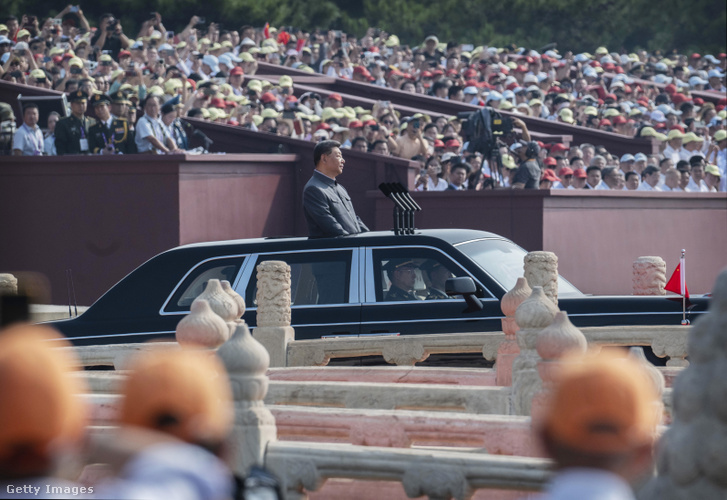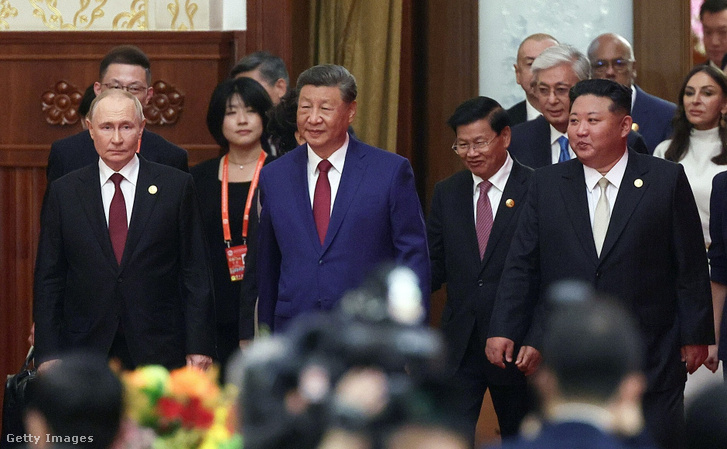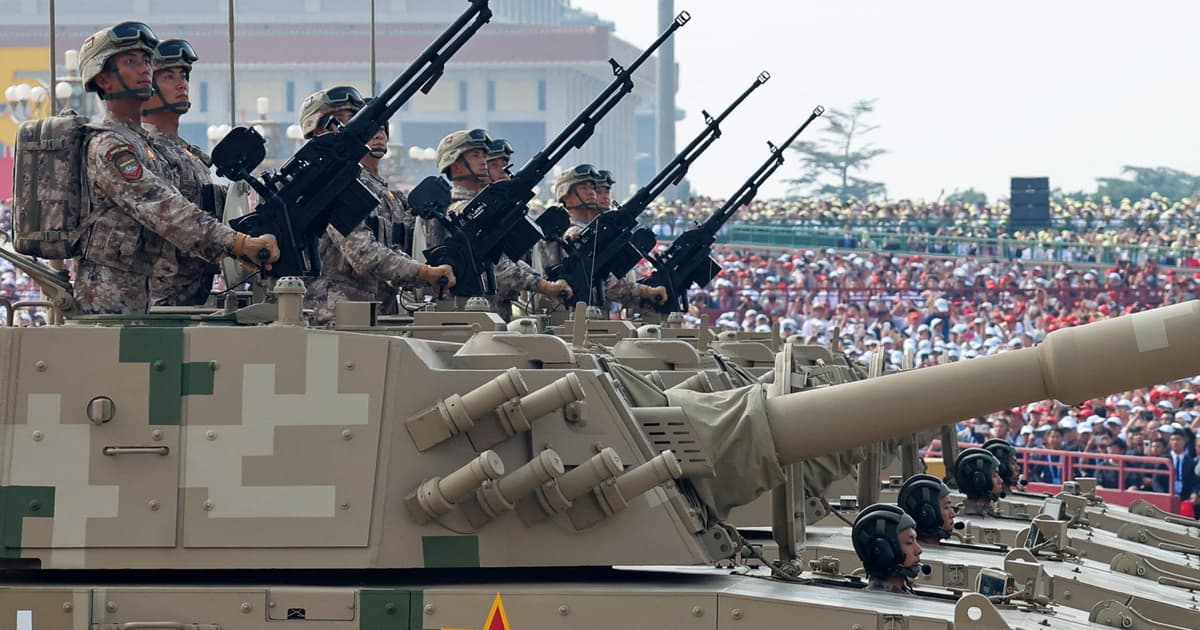As reported by Index, the People's Republic of China held a major show of force in the country's main square in Beijing on Wednesday. On the occasion of the 80th anniversary of the Japanese invasion and the victorious war against fascism, Chinese leader Xi Jinping organized a military parade, which was also attended by Russian President Vladimir Putin, North Korean Secretary General Kim Jong-un, and some leaders of the global South. Among the leading politicians from the European Union countries, only Hungarian Minister of Foreign Affairs and Trade Péter Szijjártó and Slovak Prime Minister Robert Fico appeared at the event.
President Xi Jinping spoke to 50,000 spectators at Tiananmen Square, saying: “Today, humanity faces a choice between peace or war, dialogue or confrontation, win-win or zero-sum games.” Then began the Victory Day parade, where China displayed military equipment like never before. According to Reuters, Beijing displayed its so-called “nuclear triad” for the first time in its history, i.e. its nuclear weapons that can be deployed from land, air and sea.
China is still only the second most powerful country
According to military expert József Kis-Benedek, China displayed its available weapons, but also placed special emphasis on presenting new developments. The primary message of the parade was that they are the most powerful country in the region.
The rising Asian power has tried to show that it does not want to be left behind by anyone, of course the only one who can leave them is the United States. Compared to Russia, it can be said that China's military capabilities are larger and significantly better. True, Beijing is not at war
– said the expert, then detailed that the Chinese mainly displayed drones and artificial intelligence-guided devices in terms of modern weapons, and also tried to demonstrate what they have in the field of naval warfare. “I think they are trying to show what they have and prove that they are the strongest in the region,” summarized Kis-Benedek, then pointed out the economic purpose of the event: one of the messages of the Beijing military parade is that China wants to sell military equipment, and in order to sell it, they need to show it.

Here's a gun!
Like all parades, this one has a demonstration of force, but it also has an advertising component, so the purpose of Xi's parade can be summarized as: we can manufacture these equipments, and they can be bought from us. Moreover, according to the expert who spoke to Index, not only today's, but all military parades have such a function.
There is also a commercial side to it. The Chinese do not hold back when it comes to sales. This show, like everything like this, sends a message that we have the production capacity, they have the development capacity, we are waiting for customers
– pointed out József Kis-Benedek.
Index wanted to know whether Wednesday's military parade could be seen as a nuclear challenge to the United States. Kis-Benedek believes that China can definitely pose a challenge to the United States, because they are at home in the nuclear field and are the strongest in that area. However, for example, in terms of naval power, they still have a few years to fight to catch up with America. Washington has much more advanced technology."The Chinese are still far from having the capabilities in the fields of aviation and the navy that the United States has, which therefore has a significantly greater ability to project force," the military expert believes.
Who are these buyers? Why did Szijjártó leave?
Of course, China is also trying to introduce new things, for example in drone warfare. “They have no experience in war, but in terms of the market, there is a huge continent called Africa, and quite a few people there buy weapons from Beijing.” According to the expert, the price of Chinese products is more favorable than American ones, and of course the quality is different. What is also important is that China pays less attention to political aspects in the case of an arms contract than the United States.
Of course, they don't sell everything to everyone, but they take these into account less.
In response to Index's question, József Kis-Benedek said that Hungary has very minimal military-economic relations with China:"I don't know why Péter Szijjártó went to the parade. He likes to appear in such places, but I don't think he went with the intention of buying." The expert thinks this because purchasing Chinese weapons would raise certain logistical problems.

Not only the equipment in question, but also the associated spare parts and the entire service network must be purchased from the Chinese, which is not so easy to solve - especially for a NATO country that is required to acquire NATO-compatible equipment.
This is more of a diplomatic appearance, to prove that we are open to the Chinese. Of course, they may have been conducting other kinds of negotiations
– explained József Kis-Benedek.

